What Should Spirituality Feel Like in Makkah & Madinah? 'Umrah 2024 Reflections
I recently led an 'Umrah group from NYU and Yale University. These are my reflections from that trip.
Last week I was blessed with the opportunity to lead an ‘Umrah group with the Islamic Center of New York University (ICNYU) and the Yale Muslim Student Association. Along with Imam Khalid Latif and Imam Omer Bajwa, and a group of about 100 diverse students from all over the world, we visited the holiest of sites in the Muslim world.
This trip was unique in respect to its timing. With 30,000 Palestinians having been killed in the on-going genocide in Gaza, it is difficult to experience joy. The intention many of us went with was to seek Divine assistance from Allah in helping our oppressed brothers and sisters. Many in America who lost relatives and friends in this turbulent time requested us to make this trip. This trip was also an opportunity for all the attendees to gain spiritual insights into how best to connect with their Creator.
For me, these trips have been particularly special. My first ‘umrah was with the ICNYU back in 2012 as a student. Previously in 2023, and most recently in 2024, I was honored to guide both groups as a leader. For those that do not know, I was an Imam and chaplain in the United States before I moved to Istanbul. I worked with communities between Connecticut, New Jersey, New York, and Atlanta. Every time I have traveled to the Ḥijāz (the region where Makkah and Madinah are located) with ICNYU, I found people from those same communities with us!
Madinah
This trip allowed me to reconnect with ḥadīth and fiqh works which I studied during my madrasa days. I will share some of the insights which I found beneficial for myself. Scholars tend to contrast Madinah and Makkah within the paradigm of beauty and magnificence (jamāl wa jalāl). Anyone that visits Madinah will find a sense of tranquility and beauty which fills their heart with ease. Many people that come to perform ‘Umrah tend to start in Madinah. Though there are no formal obligations pertaining to ‘Umrah in the city, it is the love of the Prophet ﷺ that brings people together here.
من زارني بعد موتي فكأنما زارني في حياتي
Allah's Messenger (ﷺ) said, "Whoever visits me after my passing, it is as if he visited me in my life.” [Reported in Daraqutni]
Muslims visit Madinah to visit the one who brought them their faith. The love of the one who taught us our purpose in life. What can be more inspiring than witnessing Muslims of various levels of observance, practice, and backgrounds, all coming to Madinah for the sake of connecting with the Prophet ﷺ?
إِنَّ الإِيمَانَ لَيَأْرِزُ إِلَى الْمَدِينَةِ كَمَا تَأْرِزُ الْحَيَّةُ إِلَى جُحْرِهَا
Allah's Messenger (ﷺ) said, "Verily, Belief returns and goes back to Medina as a snake returns and goes back to its hole.” [Reported in al-Bukhari]
In the time of the Messenger ﷺ, Muslims flocked to Madinah to learn from him and be in his company. But how does one act upon this after the passing of the Prophet ﷺ? The famous commentator Ibn Ḥajar al-’Asqalānī (d. 1449) mentions that the idea of ‘belief returning to Madinah’ refers to Muslims wishing to regularly visit the city due to the blessings in it. This sources itself from the resting place of the Prophet Muhammad ﷺ, from the traces of the companions, and from praying in his masjid. Such love transcends all eras.
For myself, Madinah makes me feel welcomed in the land of the Prophet ﷺ. It is like being received by an introductory host. In this case, it is like being received by a host who is preparing you for the ultimate meeting, Makkah. I believe the secret of being able to enjoy Madinah lies in spending time in the masjid and in proximity to the Messenger ﷺ. Though the areas near the grave of the Prophet ﷺ and the rawḍa are emphasized within our tradition, the heavy foot traffic in those areas make it difficult to remain there for a long time. Hence, instead of trying to spend the entirety of one’s time there (which will be impossible), it is best to hone in on areas where you can reflect in close proximity to the Messenger ﷺ.
Makkah
In a chapter titled “The Virtues of Makkah,” Imam al-Tirmidhi narrates a beautiful ḥadīth about Makkah:
عَنْ عَبْدِ اللَّهِ بْنِ عَدِيِّ ابْنِ حَمْرَاءَ الزُّهْرِيِّ قَالَ رَأَيْتُ رَسُولَ اللَّهِ صَلَّى اللَّهُ عَلَيْهِ وَسَلَّمَ وَاقِفًا عَلَى الْحَزْوَرَةِ فَقَالَ وَاللَّهِ إِنَّكِ لَخَيْرُ أَرْضِ اللَّهِ وَأَحَبُّ أَرْضِ اللَّهِ إِلَى اللَّهِ وَلَوْلَا أَنِّي أُخْرِجْتُ مِنْكِ مَا خَرَجْتُ
3925 سنن الترمذي كتاب المناقب باب في فضل مكة
Abdullah ibn ‘Adi reported: I saw the Messenger of Allah, peace and blessings be upon him, while he was standing near Mecca and saying, “By Allah, you are the best and most beloved land to Allah. Had I not been driven away from you, I would not have left you.”
While Madinah is where the beauty of our faith can be seen, Makkah is where the majesty of Islam can be experienced and felt. Makkah can be an emotional rollercoaster for many people. Firstly, due to the sheer amount of pilgrims that are present at any time engaging in ṭawāf of the Ka’ba. Secondly, the magnetic pull which can be felt from looking at the Ka’ba can be emotionally overpowering. Every year, there tends to be at least one person from our group who finds ṭawāf to be a very heavy experience, and is unable to continue in that moment.
Every time I see the Ka’ba, it is as if I am meeting a friend after a long time. Everything stops. While gazing at the majesty of our qibla, it is as if I do not hear anything. Things begin to move in slow motion. For me, gazing at the Ka’ba answers so many of life’s questions. Struggle, difficulty, pain, and the like. But, this is my personal experience. Everyone has a unique engagement with ‘umrah which may not be like someone else’s. Why is that?
How “Should” I Feel in Makkah and Madinah?
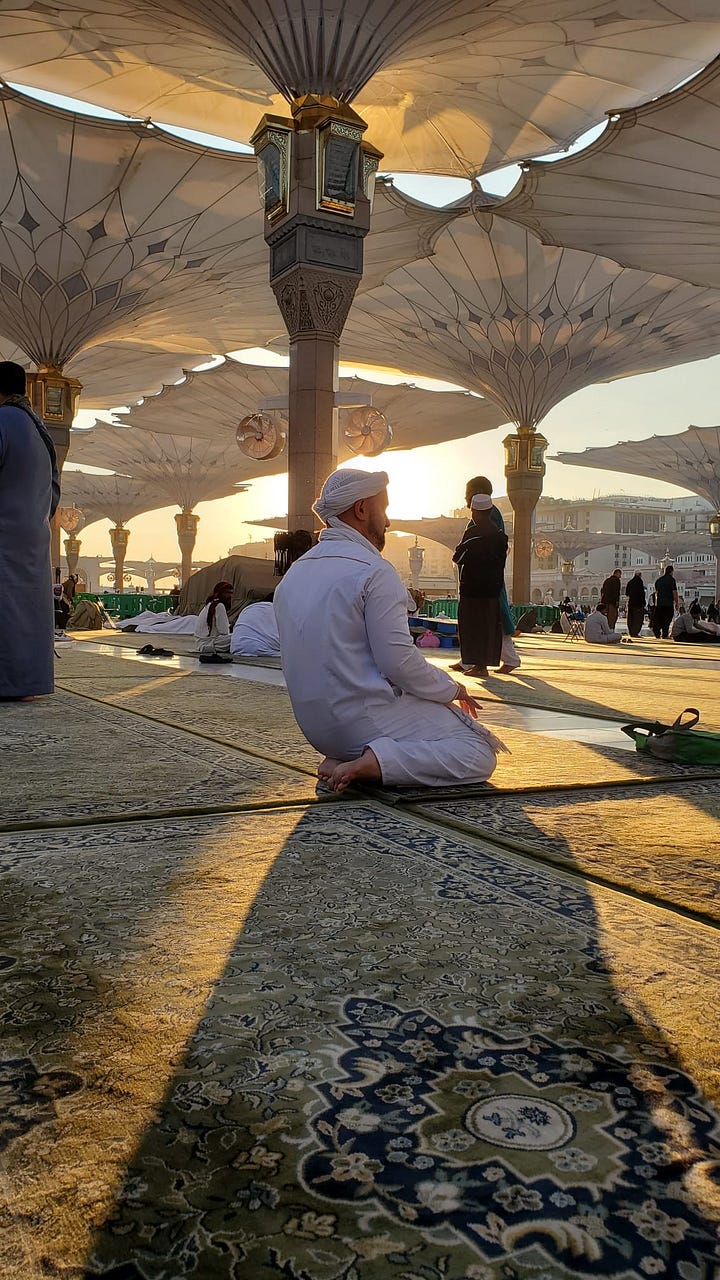
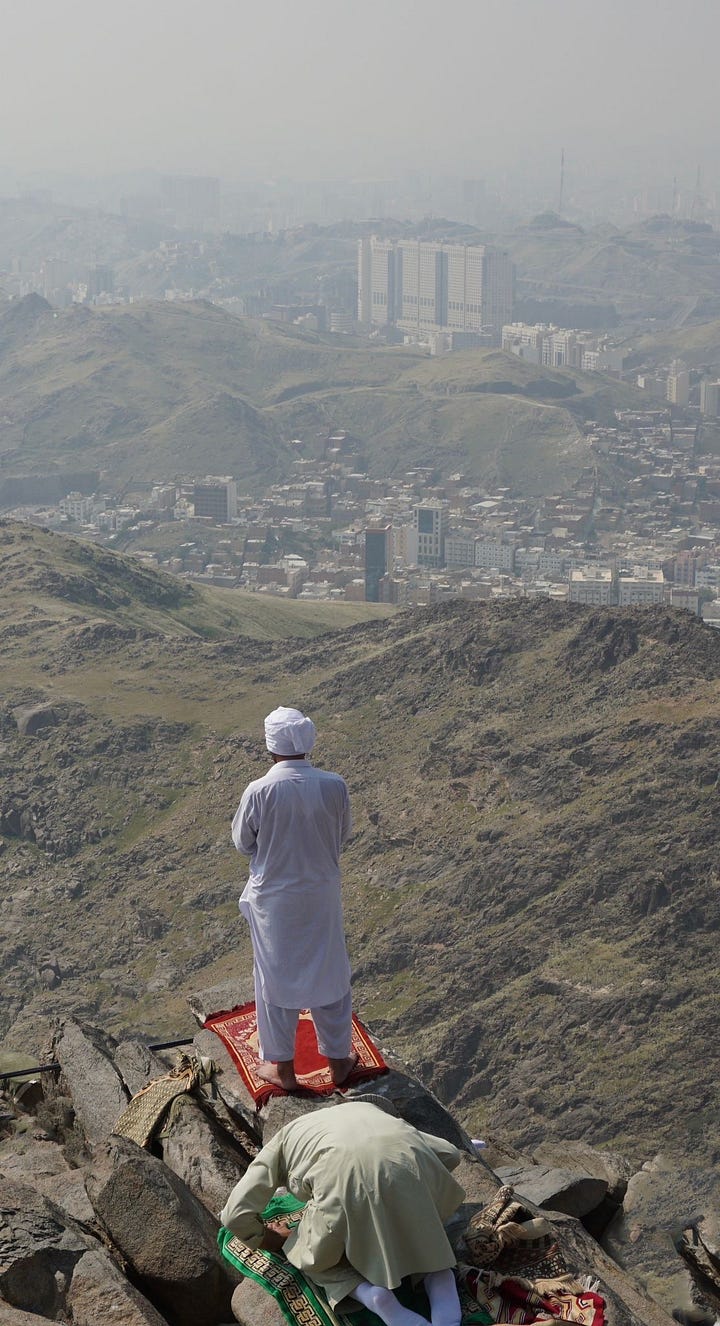
The point that myself and the other leaders belabored throughout this trip was that we do not worship our feelings, we worship Allah. There were people on our trip who did not feel anything right away, but instead had strong feelings when they returned home. There were some who felt a sense of anxiety while visiting these lands. In these situations, all these feelings are valid. Why? Because everyone has come to visit the house of Allah in varying states. Perhaps the culture of Islamic televangelism which we have absorbed through snippets on religion on TikTok and Instagram have us thinking that there is only one way to feel during these trips. As the Egyptian ascetic Ibn ‘Aṭaillāh al-Sakandarī (d. 1309) says,
لا تَتْرُكِ الذِّكْرَ لِعَدَمِ حُضورِكَ مَعَ اللهِ فيهِ، لِأَنَّ غَفْلَتَكَ عَنْ وُجودِ ذِكْرهِ أَشَدُّ مِنْ غَفْلتِكَ في وُجودِ ذِكْرِهِ
“Do not leave remembering Allah because you do not feel your presence with Him therein. Being heedless of His remembrance [completely] is worse than your heedlessness while remembering Him.” [47th wisdom]
What ‘umrah unveils to us is the most primitive level of spirituality we are at—the good, bad, and ugly. Some elements we may not like, and need to work on. Other areas which will make us proud, and we will continue to build on. For myself, the one spiritual takeaway (along with many) that I realized I need to work on is learning to better the state of my du’ā’. Wherein, I ask myself—what is my relationship with Allah? What do I want from Him? What can I do to regularly beseech Him in good times, so that I am remembered in difficult times? This will be a customized process of soul-searching unique to each individual.
Conclusion
Between my first ‘umrah and the last two I did, almost 12 years lapsed in between. Like many others, I have been through many changes in my life over this period. New jobs, new cities, new relationships, etc. I tend to be a very nostalgic person. Hence, when I arrived in Makkah, many things had changed about the city. But the new feeling I left from the city was that anytime in my life I wish to refocus my spiritual equilibrium, the presence of the Ka’ba allows me to remember what matters most in my life: family, friends, community, truth, and self-introspection.
Contrary to popular belief, spirituality in Islam is not an extraterrestrial experience. It is a messy process which forces Muslims to reckon with themselves. It may not be a feel-good experience. But, a not-so-feel-good experience, which is supposed to remove that which is harming our hearts—a process which can be painful. But once we have recovered and healed, we will thank our Creator for allowing us to leave in a better state than before.
May Allah allow us to continually return to His house regularly, and also to visit His Prophet ﷺ. Āmīn!
الْعُمْرَةُ إِلَى الْعُمْرَةِ كَفَّارَةٌ لِمَا بَيْنَهُمَا، وَالْحَجُّ الْمَبْرُورُ لَيْسَ لَهُ جَزَاءٌ إِلاَّ الْجَنَّةُ
Allah's Messenger (ﷺ) said, "(The performance of) `Umra is an expiation for the sins committed (between it and the previous one). And the reward of Hajj Mabrur (the one accepted by Allah) is nothing except Paradise."

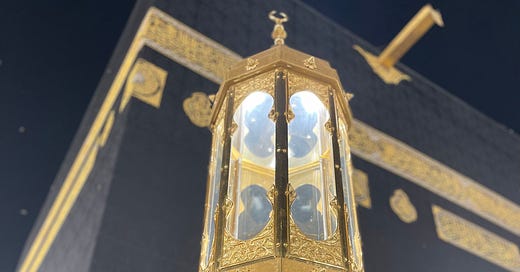


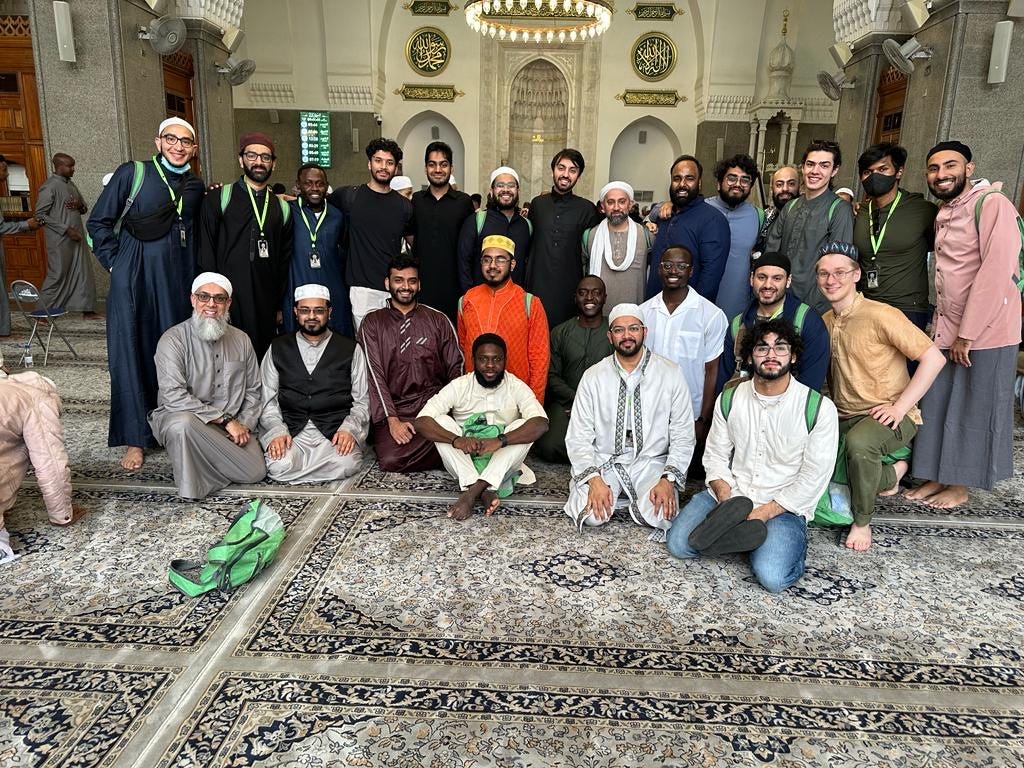
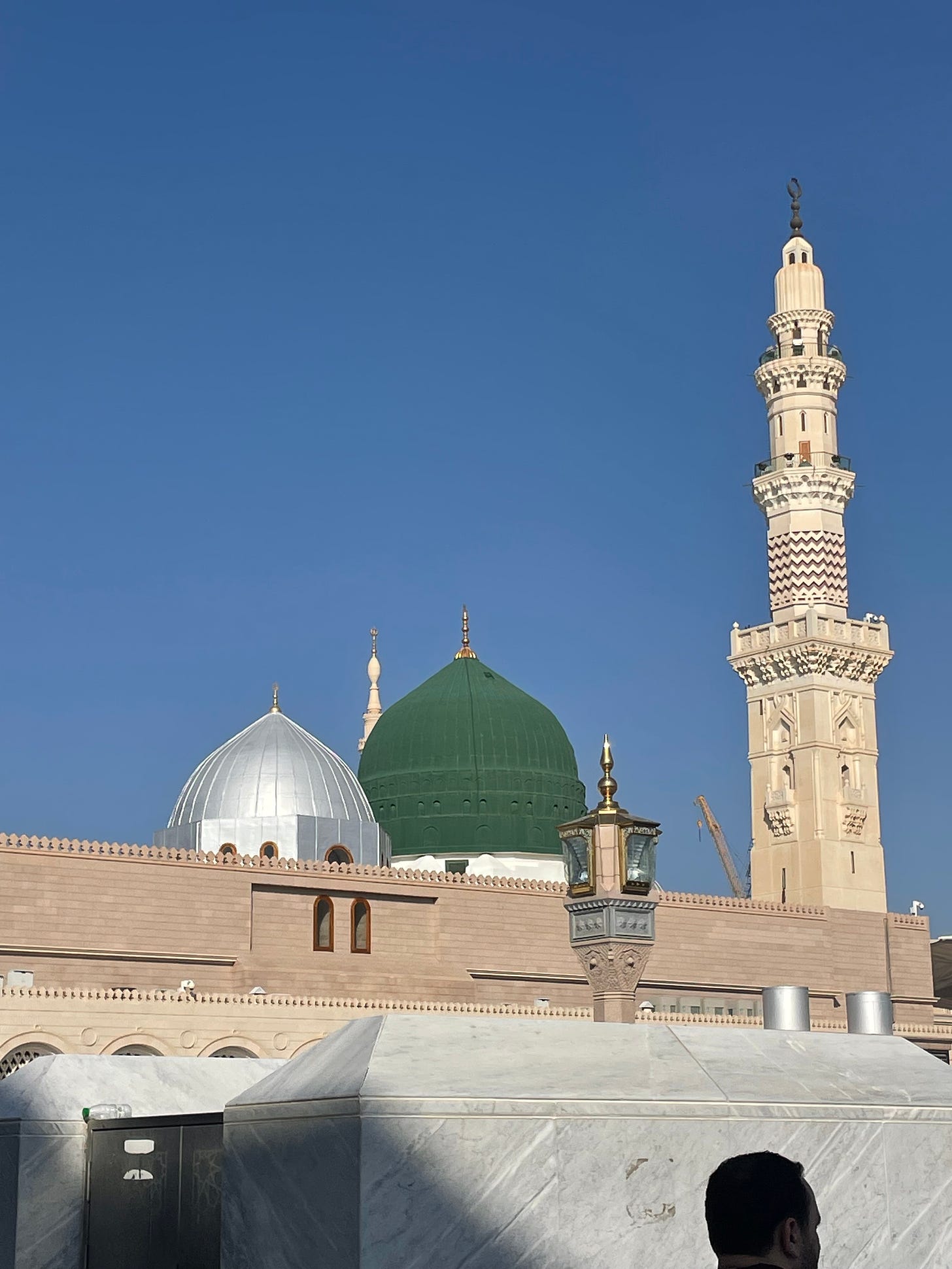
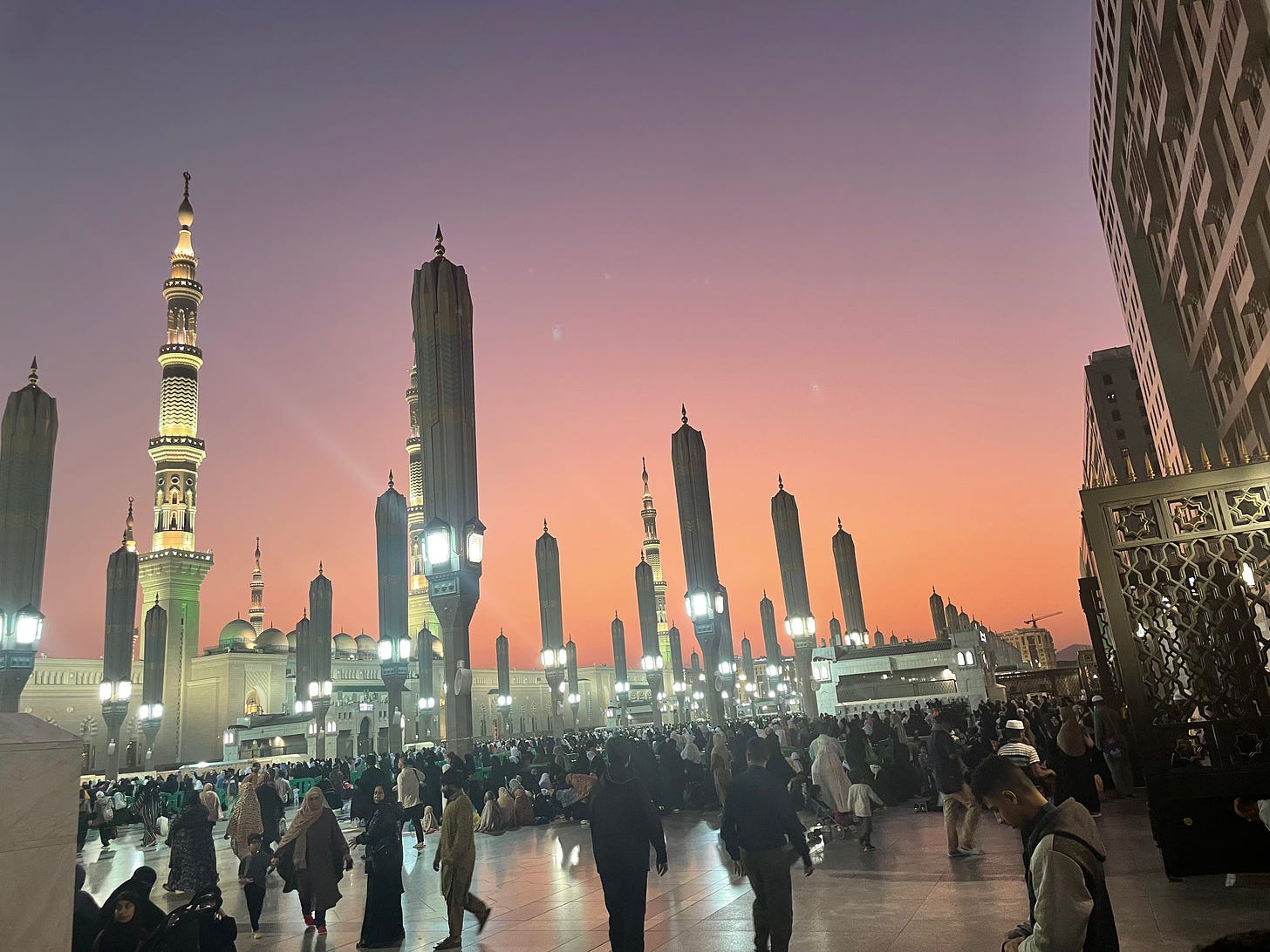

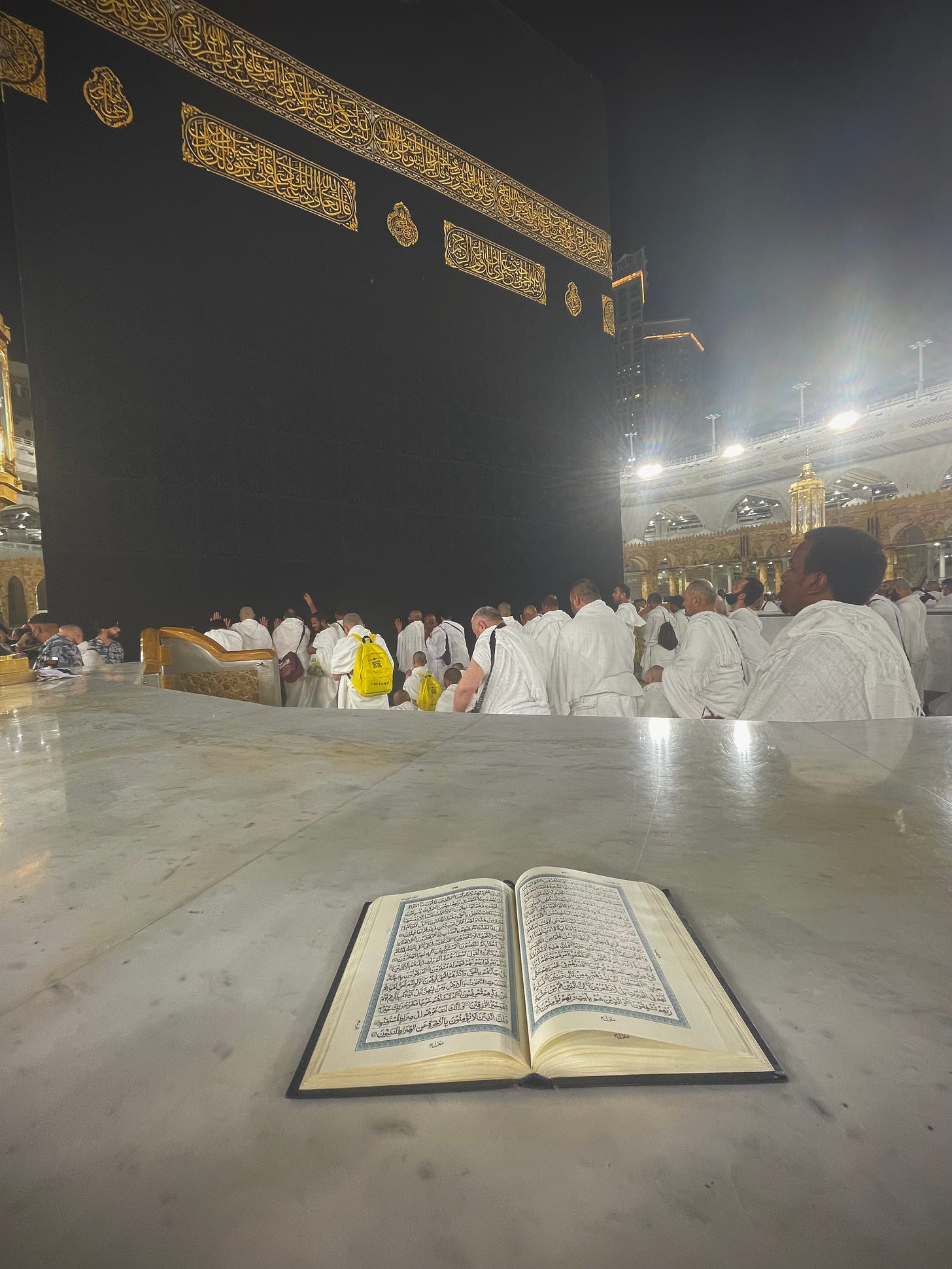
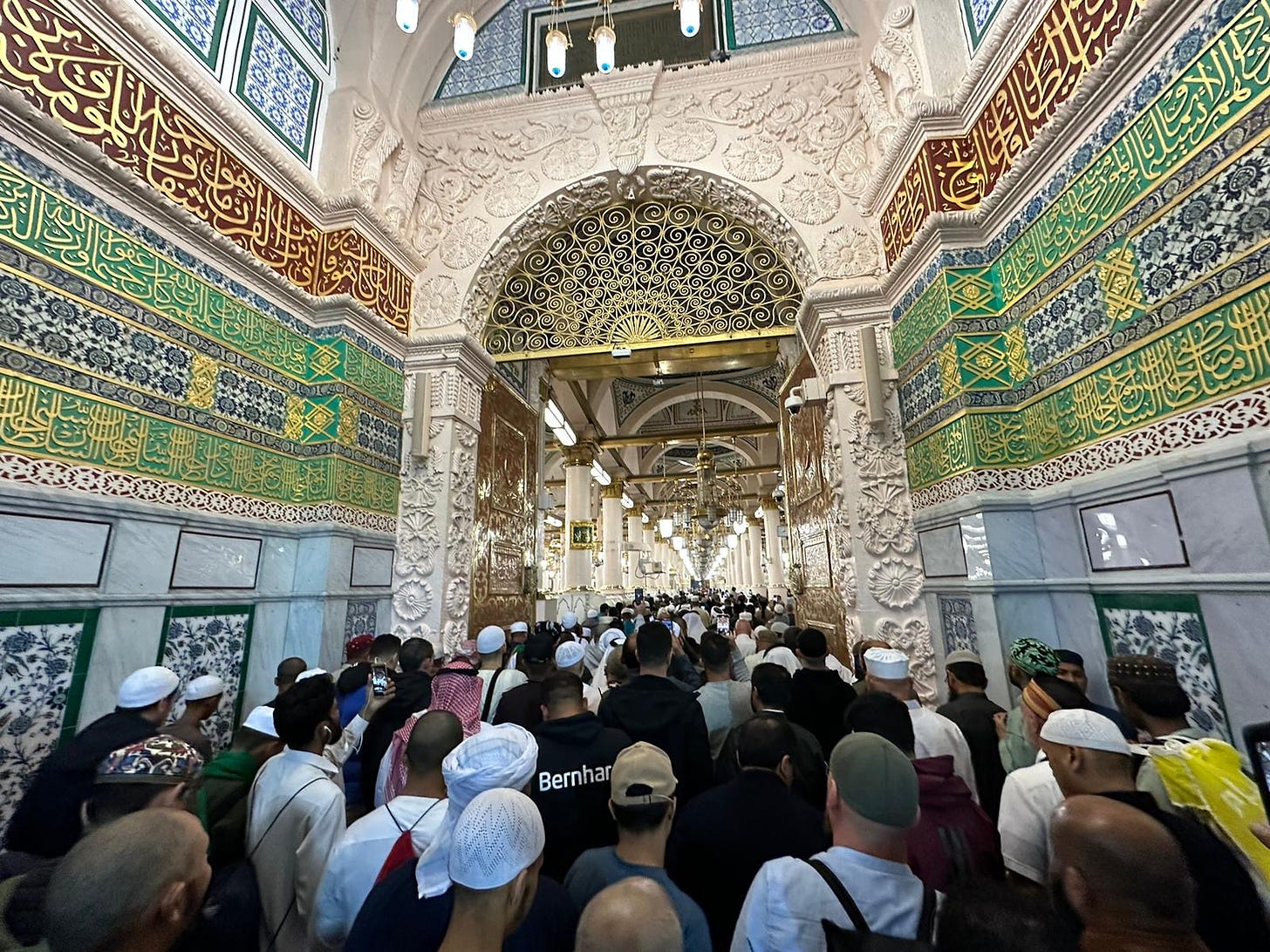
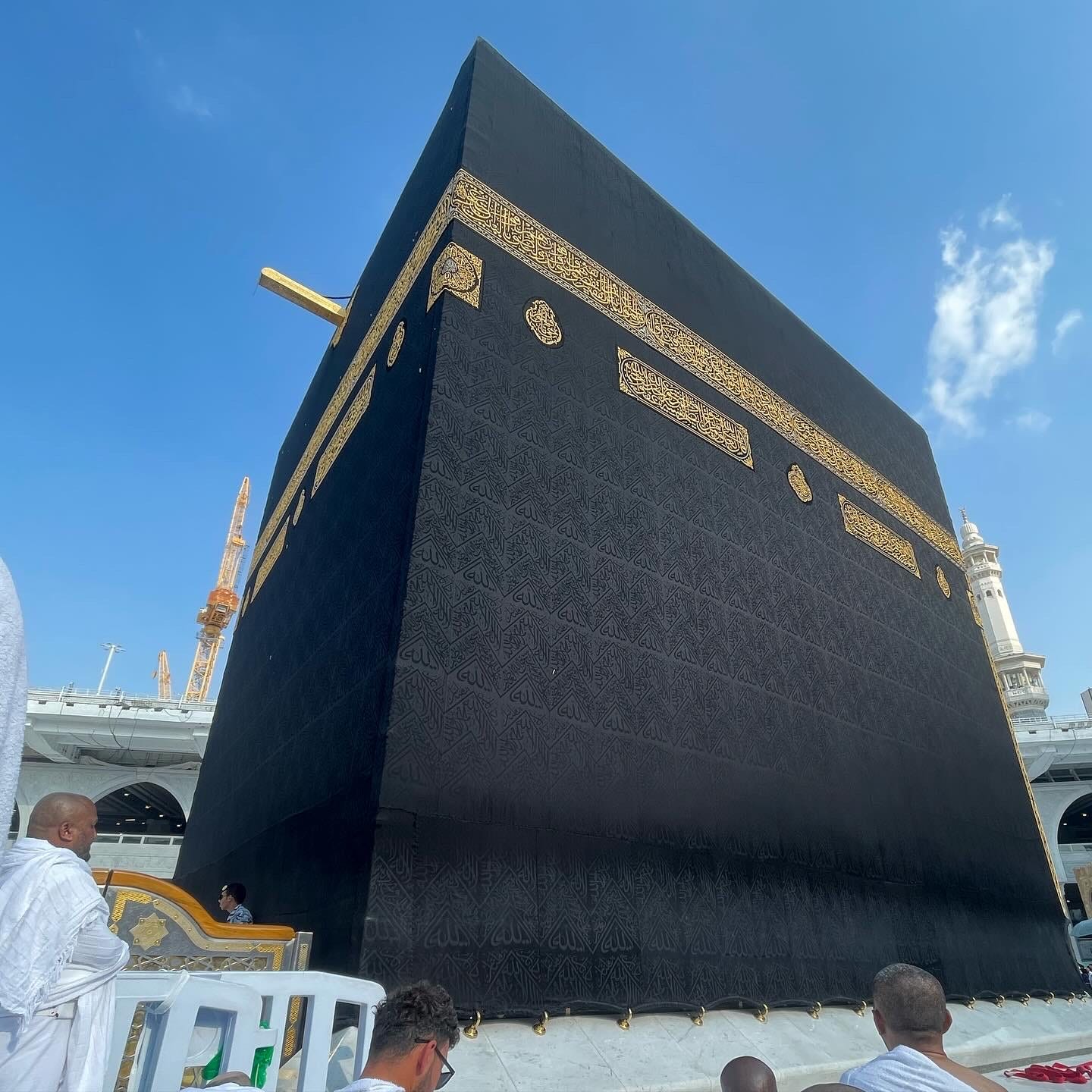
Ameen, beautiful reflections and gorgeous photos. JAK.